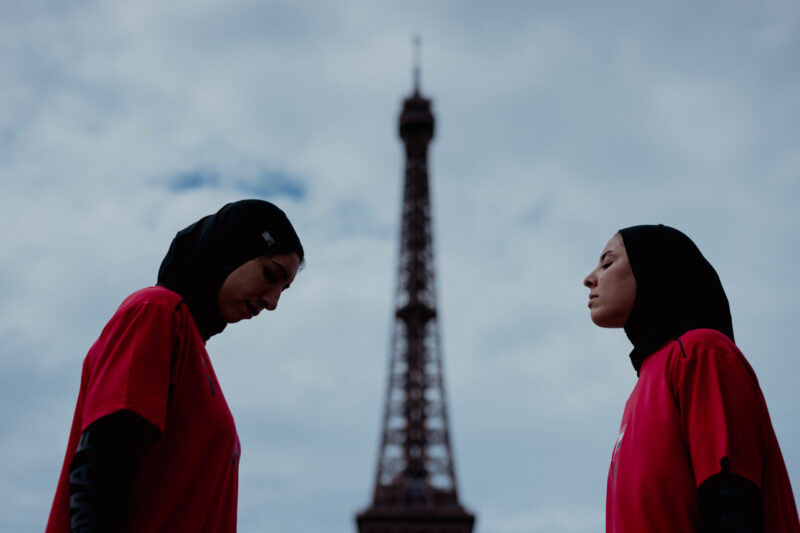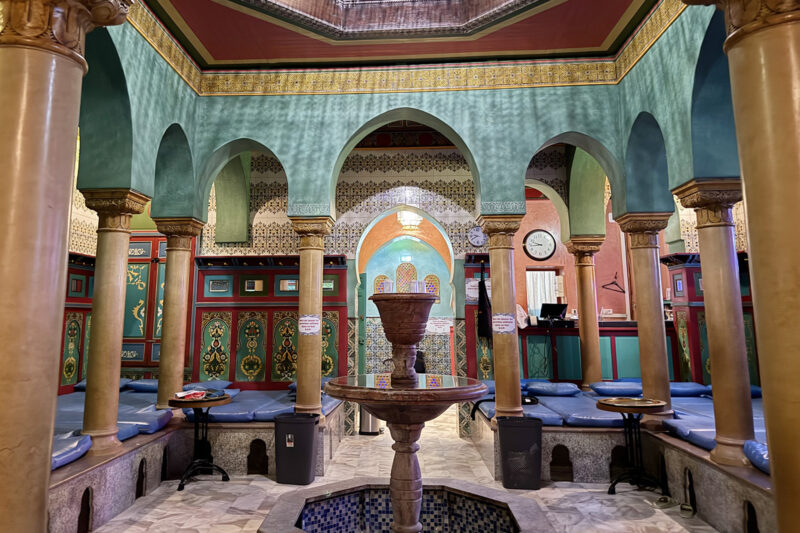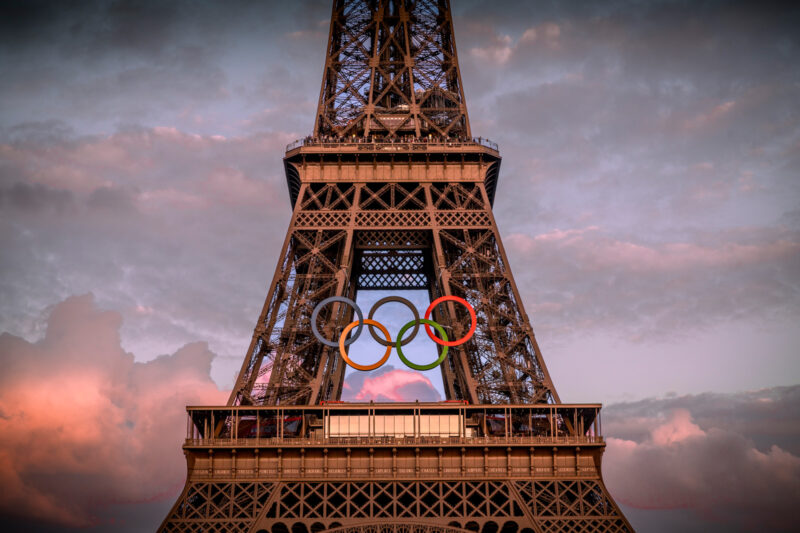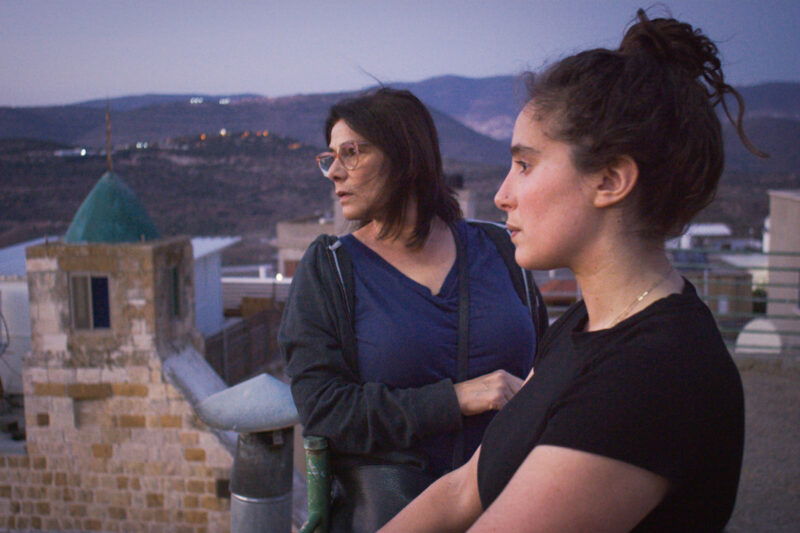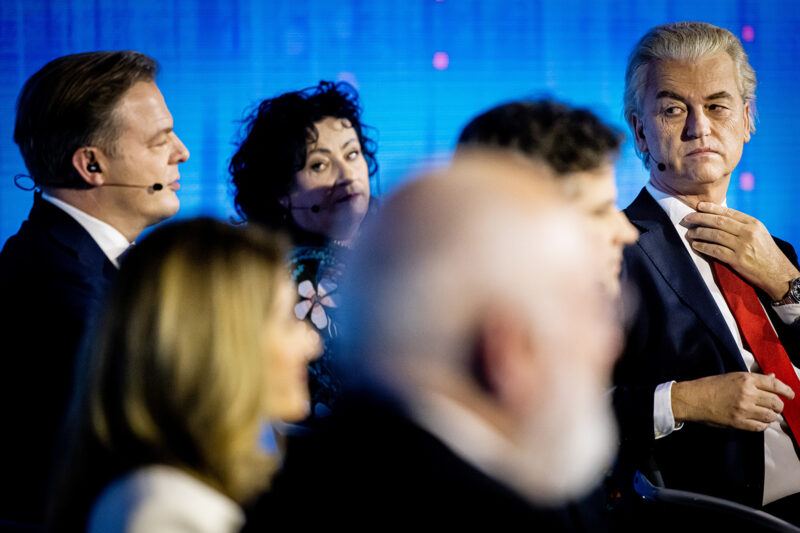The French obsession with Muslim swimwear
The latest version of the country’s burkini ban marks the continuing politicisation of how women are viewed by the state.
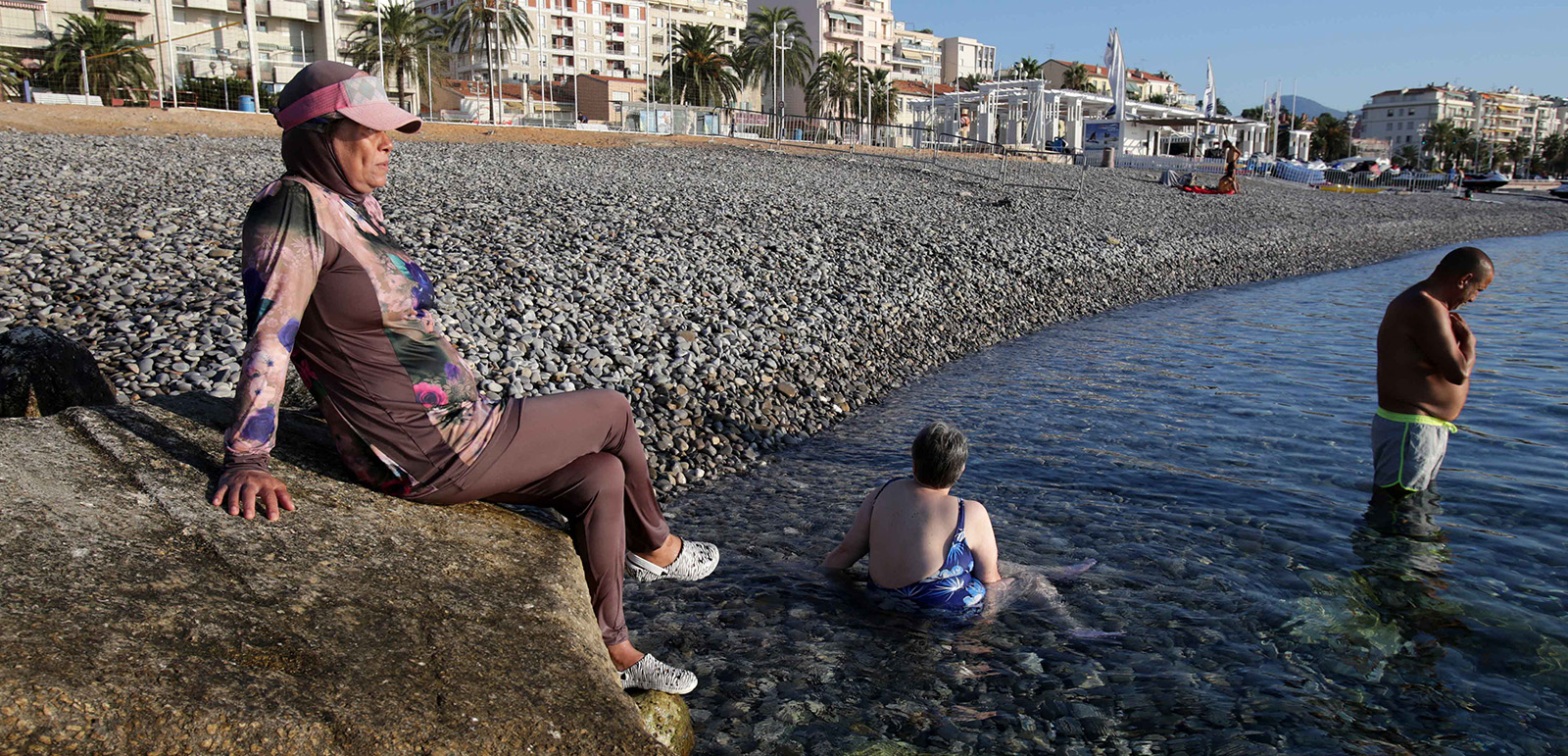
This summer, two French Riviera resorts banned women from wearing burkinis on their beaches. The terms of the prohibition were broad, but in practice they targeted Muslim women. In Mandelieu-La-Napoule, Mayor Sébastien Leroy announced that burkinis would be forbidden from 7 June, arguing the need to “guarantee the safety of bathers and not to complicate rescue operations in the event of the onset of drowning”.
His ban lasted less than two months before France’s highest court, the Conseil d’État, intervened to reverse the edict which “seriously and unlawfully infringes three fundamental freedoms: the freedom of movement, the freedom of conscience, and personal freedom”. A similar municipal decree banning bathing in a burkini on the beaches of Fréjus (Var) was reversed by a local administrative court after only five days.
Attempts to ban the burkini have been going on in France for years. In 2016, 30 cities enforced “anti-burkini” municipal bans preventing women wearing the Islamic-inspired swimwear from accessing public beaches. All were overturned by the Conseil d’État which, in a landmark ruling, announced that any such bans were a violation of constitutionally protected civil liberties. But the storm rumbled on. In 2022, the mayor of Grenoble permitted the use of burkinis (alongside topless swimwear) in municipal swimming pools and ignited a nationwide wave of criticism. Interior minister Gérald Darmanin accused him of fostering “communitarian provocation”, arguing that allowing burkinis in public pools clashed with French values. The burkini debate offers a telling insight into the role anti-Muslim sentiment has in manipulating French voters.
France is unusual among western democracies in its efforts to define and control cultural expression. This has been acutely visible in the nation’s persistent obsession with Muslim visibility, particularly when it comes to Muslim women. A national argument over how Muslim women should look has raged since the beginning of the 1990s, when several female Muslim students were expelled from state schools for wearing a hijab on the grounds that the coverings were incompatible with the principle of laïcité, a form of secularism which requires a strict religious neutrality of state institutions and is central to the French identity.
A series of controversies followed, including the “Baby-Loup” case in 2008, in which creche employee Fatima Afif was fired for wearing a veil and attempts were made to ban mothers in hijabs from joining their children on school trips. On 11 October, 2010, a new law was introduced banning face concealment in public spaces, escalating an earlier ban on any religious adornment in schools. This legislation was understood to specifically target a minority of French Muslim women who wear the niqab, a garment which covers the face in addition to the entire body. It was challenged by human rights groups but eventually upheld by the European Court of Human Rights, paving the way for other European countries to follow France’s lead. The ban may now be extended to female football players.
For Muslim women looking for work, the strict religious neutrality applied to civil servants means that the public sector is essentially a closed door for those who choose to cover themselves in France. Private companies, while seemingly more accommodating, are following the state’s lead. In 2016, the El Khomri Law introduced the principle of neutrality in the private sector and private companies can now demand neutrality from their employees. Sidelined from volunteer activities and facing substantial hurdles in the job market, French Muslim women are grappling to find their place in a society which, under the guise of laïcité and the protection of public order, restricts their basic civil liberties and their freedom of religion and movement.
Of all the scandals concerning Muslim identity, the burkini is the defining one. Invented by Australian entrepreneur Aheda Zanetti in 2003, this body-covering swimwear was designed to enable Muslim women to enjoy beaches and water sports without compromising their beliefs. Sadly, what could have been an emblem of inclusivity has become a totem of otherness.
Politicians across the spectrum continue to attempt legal acrobatics to circumvent and ignore the Conseil d’État’s 2016 ruling, as illustrated this summer in Mandelieu-La-Napoule and Fréjus. Once again French Muslim women have found themselves targeted, accused of facilitating extremist ideologies and fostering division – popular prejudices that have been inflamed by the rise of racist conspiracies such as the white supremacist theory of “the great replacement”, which falsely claims that Muslims are orchestrating a demographic takeover of France and Europe. These divisive narratives stoke fears and contribute to the marginalisation of Muslim communities and the division of our society.
One of the many consequences of the weaponisation of laïcité seen in the Riviera this summer is that growing numbers of French Muslims are considering emigration. France, a country that prides itself at being “the country of human rights”, risks losing a community that would enrich its social, cultural and economic landscape. More than that, when public authorities choose to enforce what they consider cultural norms through legislation, a dangerous precedent is set. Rather than forcing cultural outliers to comply, they undermine the social stability and liberty they claim to be safeguarding.
On 31 August, as the summer drew to a close and French students prepared to return to school, they learnt from education minister Gabriel Attal that from the start of the new school year any student wearing an abaya would not be allowed to enter the premises. His order was designed to protect French classrooms from “a religious gesture, aimed at testing the resistance of the Republic”. As many French Muslims were already painfully aware, it would have been naïve to hope that the politicisation of religious identity would stop at swimwear.
 Newsletter
Newsletter



